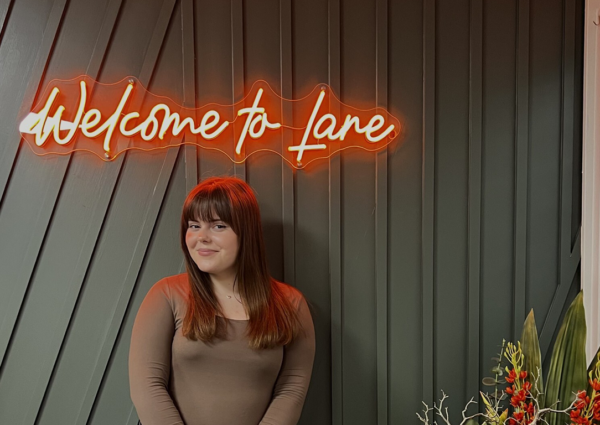Fear & hope. Words of wisdom for aspiring creatives.
Ricky Stevens • 1st Aug 2015
Despite this, in my 17 years of being a creative type in the commercial world since graduating from Glasgow School of Art, I have never published a single article about my professional passion that’s been longer than a 140-character microblog.
And that’s probably by design.
I suppose I had felt that putting words down in black and white was a role for those far more qualified than me. That I had to reach a certain level of industry recognition before I could start spouting my words of wisdom.
But now I don’t, so here goes nothing. Deep breath time.
Throughout my career I have always felt like the eternal student learning from the experts. I think I’ll always feel that way – continually on a quest to better myself – to learn more – searching for divine creativity which I’m sure exists, probably somewhere in the Bermuda Triangle.
And when it comes to published articles, I’m usually the one fascinated by the story I’m being told, rather than adopting the role of the fascinating storyteller. Everyone has a story to tell in the hope of inspiring others, so I’ll start to tell mine today.
I’m going to start by sharing some of the things I’ve learned and experienced, in the hope I can contribute something meaningful to those sailing in the uncharted waters of the Creative Ocean, needing all the navigation advice they can get their trembling hands on.
It’s time for me to stop being fearful and start being helpful to those who need to hear that there is hope for a long successful creative career just by following a few guiding principles, so here are mine:
1. Draw inspiration from everything.
Every single day I see something that takes my breath away, created by an individual who leaves me feeling awestruck. After the initial 10 second pang of overwhelming jealousy has subsided I then feel a rush of inspiration having realised that I’ve just learned a new technique, approach or style – I have been creatively enlightened.
Sometimes it’s about simply observing the everyday, looking at something from a different perspective, imagining an object in another environment or a situation in another setting, drawing inspiration from interesting conversations or random anecdotal situations.
Above all, I find listening to others is one of my greatest inspirations.
Record these things however you like. Some people sketch, some photograph, some write, some just remember. Use whatever method is easiest – get it tattooed on your partner’s posterior if that’s your thing. Just get it stored.
The trick is then to apply those insights and moments of inspiration when the time, and the brief, is right.
2. Stay level-headed and down to earth. (This one is tricky.)
I’d like to help inspire young creatives to pursue their dreams, follow their hearts and remain unbending in their quest for creative utopia without either becoming disheartened and quitting, or becoming egotistical maniacs along the way. Neither of those routes lead to happiness. Believe me, I’ve witnessed both the mighty fall and the talented crumble.
I’ve learned invaluable lessons through positive and negative experiences alike throughout my career. Often the harshest words and the cruelest people have made me more determined to succeed. It’s always about hearing the brutally honest truth, accepting it, learning from it and moving on to greater accomplishments. Keep believing in your ability, regardless of the setbacks: you got this far, you can go all the way.
My sensitive skin has gradually grown thicker and thicker, year after year of being in the industry, by learning to take every bit of feedback on the chin, accepting that it’s nothing personal, learning from it and applying those learnings to the next iteration of that project or future creative challenges.
It’s all about resilience, sheer determination and knowing when to listen. Lesser creatives make the mistake of thinking they know it all and their arrogance is their inevitable downfall.
Conversely it’s also about not letting great feedback and admiration of your work get to your head. This game is a marathon and if you rest on your laurels, you’ll quickly lose focus. You’re only as good as your last creative piece, so it’s about remaining consistent over a long period, so keep your feet on the ground even if your head is in the clouds.
3. Remember to switch off
Although the creative brain never really takes a holiday, it’s essential to break from a creative task, especially if you’re struggling. Go and make a coffee, have a chat, read a book, ride a horse if you like – just remove yourself from the situation and it will help. Sitting dwelling over the issue is a waste of time and energy. Come back refreshed and you’ll crack it.
The temptation is to submerge yourself in the problem you’re attempting to solve, but be courageous and walk away from it. Everyone needs time away from stressful and challenging situations and the creative process can be just that.
Try sticking to these principles and hope, with a big dose of talent and levelheadedness, will overcome fear.
And so begins my many words of wisdom. There’s no holding me back now.


